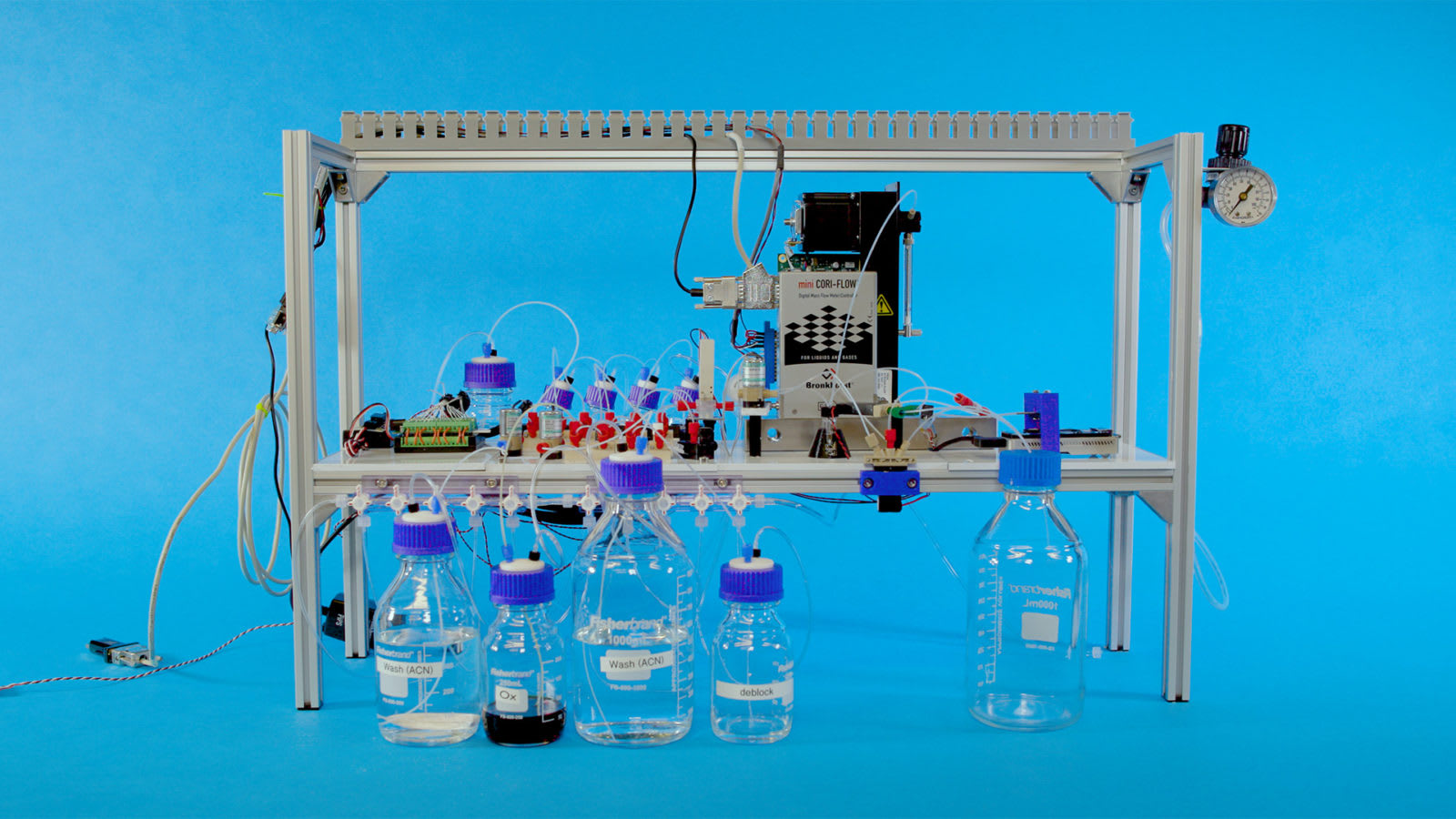
We've seen scientists experiment with DNA as a storage medium -- most recently with a Harvard team fitting 704TB of data onto a single gram of the genetic material -- and it looks like that research trend is only picking up. Scientists at the European Bioinformatics Institute in the UK have encoded an MP3 file -- along with a digital photo and all 154 of Shakespeare's sonnets -- into DNA, with a hulking storage density of 2.2 petabytes per gram. The information was written using the language of DNA's four bases (A, T, C and G, if you remember high-school bio), and to provide error correction the scientists reserved one of the letters to break up long runs of any of the other three bases. In practice, this system allowed for 100-percent accuracy in sequencing and retrieving the encoded files. Though DNA storage is still quite expensive, the researchers say this method could eventually provide a viable option for archiving information, especially considering DNA's high capacity and long life span. Still, you won't be ditching that hard drive just yet.
Filed under: Storage, Science, Alt
Comments
Via: Ars Technica, New Scientist
Source: Nature
 Microsoft is on its way to replacing data centers with DNA. The company and researchers from the University of Washington have successfully automated the process to translate digital information into DNA and back to bits. They now have the first, ful...
Microsoft is on its way to replacing data centers with DNA. The company and researchers from the University of Washington have successfully automated the process to translate digital information into DNA and back to bits. They now have the first, ful...
 Microsoft is on its way to replacing data centers with DNA. The company and researchers from the University of Washington have successfully automated the process to translate digital information into DNA and back to bits. They now have the first, ful...
Microsoft is on its way to replacing data centers with DNA. The company and researchers from the University of Washington have successfully automated the process to translate digital information into DNA and back to bits. They now have the first, ful...



